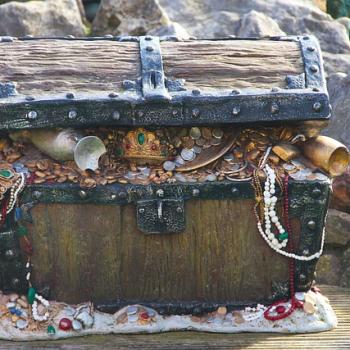The film's title is itself a thought-provoking curiosity: could the easy step from Seraphim Falls to "Fallen Angels" possibly be an accident? Where exactly are Carver and Gideon conducting this hunt, anyway? Limbo? Or is it Hell itself? Could the film be understood as Dante's Inferno in reverse, its protagonists clawing their way from the frozen Ninth Ring of Treachery towards eventual salvation?
It is the salvation part that gives the film a memorable topspin, as it comes down to a truth that is so obvious it usually escapes us: we all hope for mercy, but justice must come first, or mercy is simply not possible.
The film's recognition of this truth, which becomes so fundamental to the lives of its protagonists, is the true gem. Mercy and Justice are not "Either/Or," they are "And."
We often find ourselves thinking of justice and mercy as two sides of the same coin, fervently hoping that the coin "comes up Mercy" on the Day of Judgment. To paraphrase Hosea, it is mercy I desire, not justice. In fact, if we could get the awkward question of justice off the table altogether, I'm sure the Final Judgment could get along swimmingly without it.
Yet what can one possibly mean without the other? We must recognize the vast gulf between our actions and what we could and should have done, before God can offer mercy.
In the Gospel, the prodigal son not only recognized his great folly; he asked his father to deal with him justly: "I no longer deserve to be called your son; treat me as you would your servants..." Yet it was his very desire for justice that permitted the father to show his son such profound mercy.
How can God forgive someone who does not recognize their own need for forgiveness? Sure, a "debt" could be paid, but what would that payment mean if there was no spiritual transformation to accompany it? We must be transformed if we are to be perfected, yet there is no transformation without recognition and acceptance of our own personal, insurmountable failings.
And there is no way to recognize those failings without first embracing Justice.
Shakespeare says that humans are most like God "when mercy seasons justice," and perhaps he's right. But we are most dear to Him when our desire for justice seasons our desperate pleas for mercy.
For it is only once we want Justice that we can truly get Mercy.





